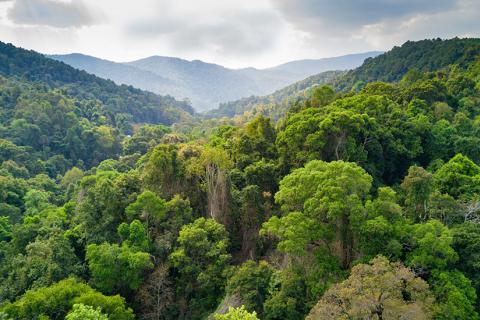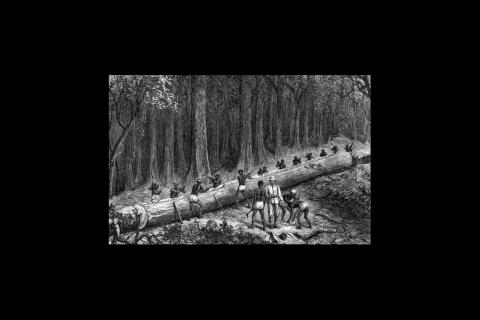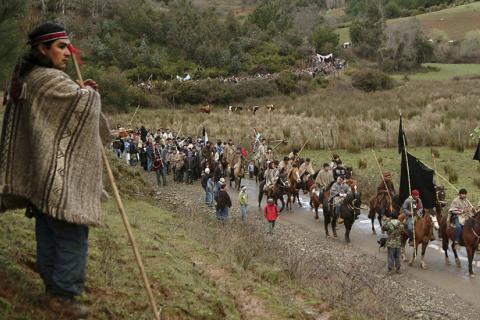The Independent Producers of Piray (PIP) in Misiones, Argentina was formed in 2005 to stop the advance of multinational Arauco’s pine tree monocultures and reclaim the land. WRM spoke with Miriam Samudio, a key member of the PIP family, to reflect on the process of the struggle and the lessons learned.
Bulletin articles
The nearly 5,000 km. of the Mekong River, which crosses six countries and sustains the lives and livelihoods of millions, is under severe threat due to the on-going construction of large scale dams. Communities are resisting what could be the final struggle to save some of the remaining parts of the River… of their lives.
In Brazil, oil palm plantations are expanding rapidly, mainly in the Amazonian state of Pará. BBF (Brasil BioFuels), the largest oil palm company in Brazil, stands accused of environmental crimes and violence against indigenous, quilombola and peasant communities such as Virgílio Serrão Sacramento, a community linked to the Small Farmers’ Movement (MPA).
More than 10 million hectares in Indonesia are controlled by the pulp and paper industry, mainly by two giant corporations: APP and APRIL. Despite the companies’ commitments to protect forests and peatland, both keep being associated with deforestation, forest fires and to a business model of violence, criminalization and dispossession of forest communities. (Available in Bahasa Indonesia)
Communities resisting the impunity and impacts of oil palm growers in Ecuador: Cases from Esmeraldas
There are currently 270,000 hectares of oil palm plantations in Ecuador. The resistance processes of the communities of La Chiquita, Guadualito and Barranquilla de San Javier in the region of Esmeraldas continue to generate outrage and solidarity among other communities, and internationally.
Quilombola Communities’ Resistance Against Suzano Company in the Southernmost part of Bahia, Brazil
A conversation with the president of the Volta Miúda Quilombola Association and of the Southernmost part of Bahia Quilombola Cooperative revealed how Suzano, the world’s largest paper and cellulose corporation, continues to operate with serious violations and illegalities. Communities keep fighting to reclaim their lands back.
The ‘conservation’ model in India continues to enclose forests and evict communities in a deliberate attempt to undermine and scuttle the Forest Rights Act (FRA) - a landmark legislation that strengthens the authority of communities over their forests. Meanwhile, companies are allowed to destroy forests, even inside the conservation areas.
This bulletin focuses on a central cause of large-scale deforestation and dispossession of forest peoples: The imposition of land concessions as an instrument to separate, divide and map land according to economic and political interests. In consequence, the editorial alerts on the grabbing of vast amounts of hectares for Carbon Concessions.
The control of land was vital to colonisers. It meant wealth, territorial influence, access to ‘resources’ and cheap (and often enslaved) labour. The separation of indigenous inhabitants from their territories was a crucial component that persists until today. The effect of this history continues to influence the management of and conflicts over land.
British firms not only controlled 80 per cent of the established ‘logging lands’ in Thailand, but they also influenced the establishment of the Royal Forest Department, which came to have total power over the nation’s forests. Massive land grabs and various colonial laws made half the country’s territory into a colony of the central state.
What a certain historiography terms civilizational expansion or capital’s expansion has in fact been the invasion and de-territorialization of peoples and communities using much epistemic and territorial violence. Concessions have been granted in areas that are not demographic voids, a colonial concept that ignores the fact that they have been populated for millennia.
Many oil palm plantations’ concessions in West and Central Africa were built on lands stolen from communities during colonial occupations. This is the case in the DRC, where food company Unilever began its palm oil empire. Today, these plantations are still sites of on-going poverty and violence. It is time to end the colonial model of concessions and return the land to its original owners.











